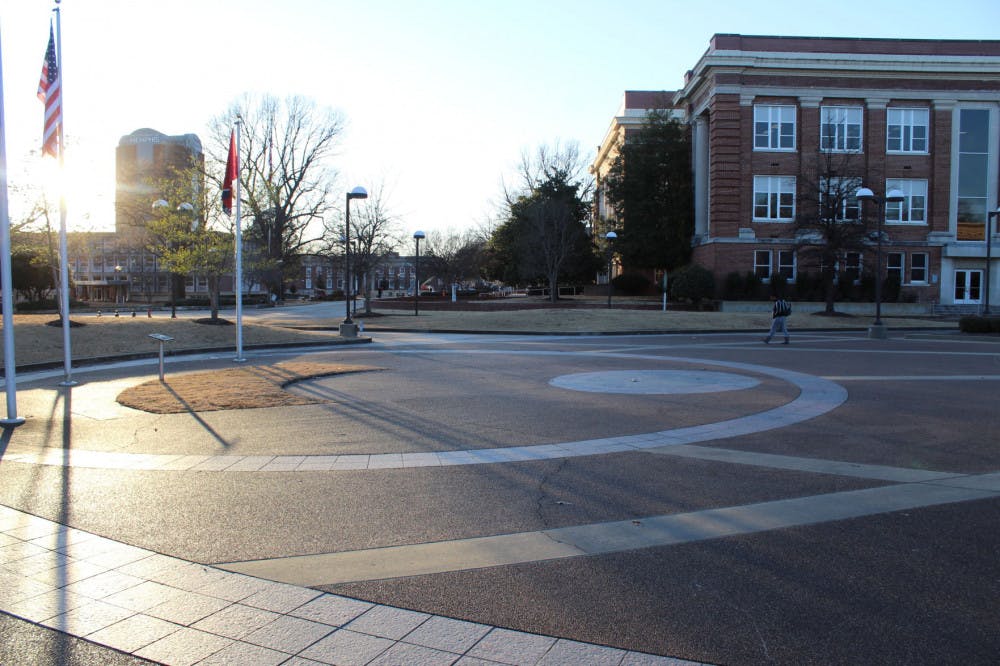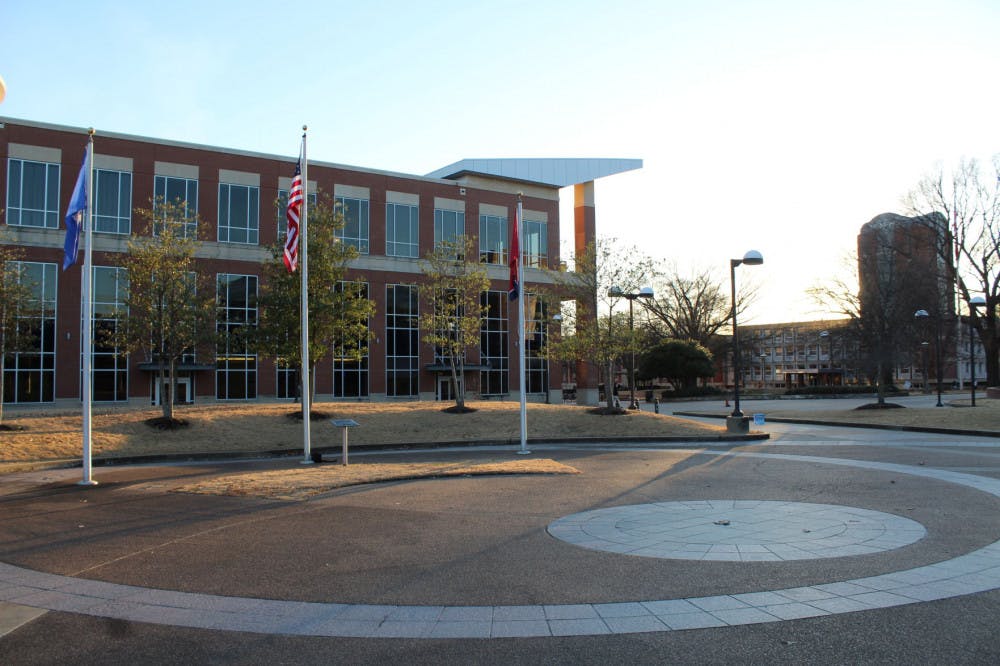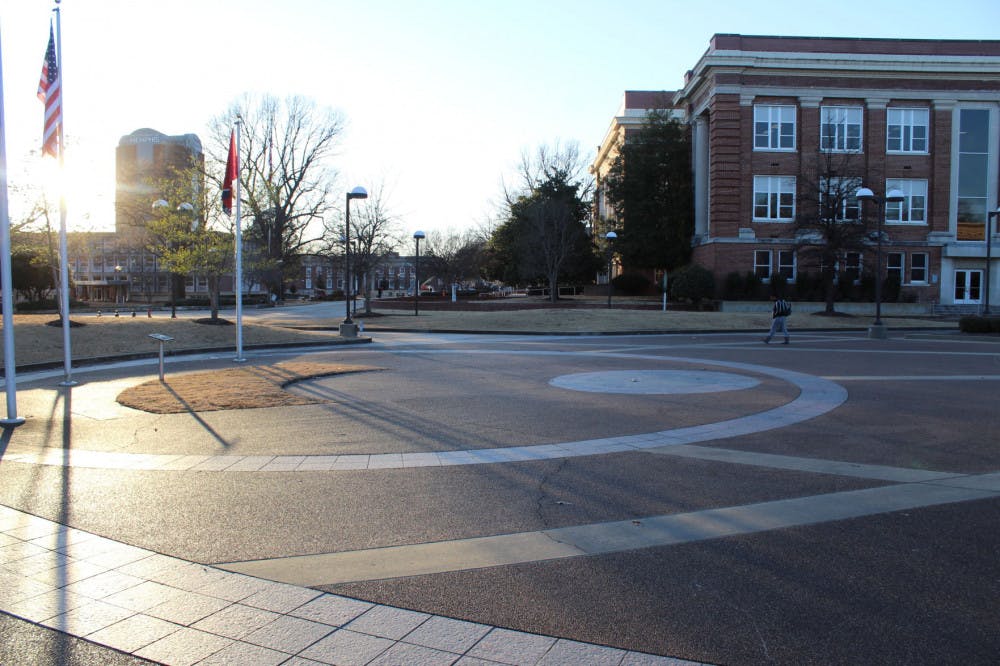
Protesters often come to this spot to speak out on issues they care about. One man comes often to speak about his views to the students.
Student Harley Barber was expelled from the University of Alabama last week for posting racial slur-laden videos online.
Barber, 19, was a freshman at UA at the time of the incident. After being kicked out of her sorority, Alpha Phi, Barber was subsequently expelled from the university.
UA president Stuart A. Bill released a statement Jan. 17 that condemned Barber’s actions as “highly offensive and hurtful.â€
The incident at UA has started a national dialogue about which types of speech are protected and which types of speech are not protected on college campuses.

Protesters come to this spot to get students' attention. One protester comes here often to share his religious views.
Journalism and Strategic Media Department Chair M. David Arant agreed that when students state things verbally which provoke violence or discontent on a college campus, there is grounds for censorship.
“When free speech becomes a weapon, when it incites or provokes violence or creates a dangerous situation for students, speech should most definitely be monitored and controlled,†Arant said.†When you target specific individuals and/or personalize your hate speech, for example, this becomes a disruption of the peace on a college campus.â€
While Arant agreed that Barber’s viral videos were extremely distasteful and offensive, he also points out the freedom of speech protections under the First Amendment extend even to hate speech.
“I personally do not associate with anyone who uses racist language — it’s offensive and unnecessary,†Arant said. “However, we must remember that in the United States, our freedom of speech and expression is protected. While Harley Barber was obviously using extremely offensive language in her videos, she was not personally attacking any particular individual through her use of racist language by name for example. While the expression was distasteful to say the least, it was within her right to express herself.â€
While the hate speech Barber engaged in has been condemned by the majority of the American media, Arant feels it’s a slippery slope when it comes to institutions attempting to regulate what adults do on the internet — even college students.
“Abstract speech is free speech — we may not agree with it, but it is free speech,†Arant said. “Only when you incite violence or discord through your speech does it then become the kind of speech that needs to be regulated by the university in order to avoid possibly violent or disruptive situations.â€
While Arant disagrees with the offensive content in the videos that Barber posted, he mentions that the First Amendment does protect even that kind of speech.
“Abstract speech is free speech, and it’s very difficult to constitutionally punish that,†Arant said. “Perhaps a more effective way to tackle such a sensitive issue is for the individuals who are offended by the use of such language to disengage with those who are using it.â€
The University of Memphis Code of Student Rights and Responsibilities identifies verbal threats and/or “attempts to intimidate, including but not limited to statements meant to provoke conflict with another person or which cause a reasonable fear for the person’s safety,†as conduct dangerous to others, and grounds for punitive action by the university.Â
Under the U of M’s Access to and Use of Campus Property and Facility policy, the university and its areas are described as “non-public forums,†which means the university can place certain limits on when and where someone speaks but not what they speak about unless it expresses a “clear and present danger for physical harm, coercion, intimidation or other invasion of lawful rights of university’s officials, staff, faculty members or students.â€
The university has locations that can be reserved for public forums, according to Mary Balee, the chief of police at the U of M.




